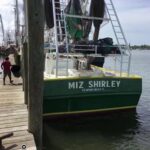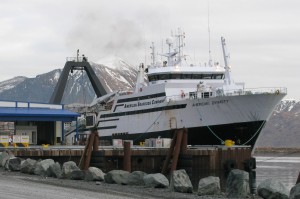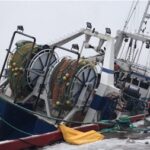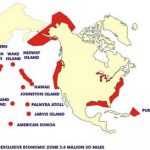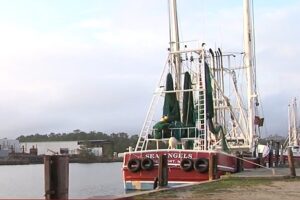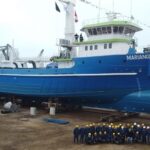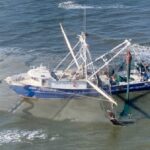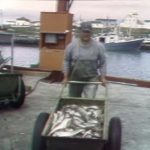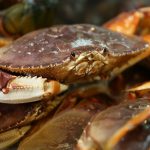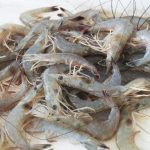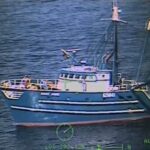Tag Archives: commercial fishermen
Chinook harvest limit down nearly 40 percent from last year
 The harvest allocation for king salmon in Southeast Alaska is lower than the region’s commercial trollers expected. The Alaska Department of Fish and Game announced Tuesday (4-1-25) that 130,800 treaty Chinook salmon will be available this year for all Southeast fisheries, down almost 40% from last year’s allocation. From that total, trollers are allowed to catch 92,700 king salmon. The balance of treaty salmon goes primarily to sport anglers. Sitkan Matt Donohoe is the vice chair of the Alaska Trollers Association. “We heard that it’s going to be lower than last year, but we didn’t know how much,” “It’s a devastating number. It’s the worst ever. I mean, what industry can afford a 40% reduction?” more, >>CLICK TO READ<< 19:11
The harvest allocation for king salmon in Southeast Alaska is lower than the region’s commercial trollers expected. The Alaska Department of Fish and Game announced Tuesday (4-1-25) that 130,800 treaty Chinook salmon will be available this year for all Southeast fisheries, down almost 40% from last year’s allocation. From that total, trollers are allowed to catch 92,700 king salmon. The balance of treaty salmon goes primarily to sport anglers. Sitkan Matt Donohoe is the vice chair of the Alaska Trollers Association. “We heard that it’s going to be lower than last year, but we didn’t know how much,” “It’s a devastating number. It’s the worst ever. I mean, what industry can afford a 40% reduction?” more, >>CLICK TO READ<< 19:11

All Sides Struggling to Find Common Ground for Potential Compensation Package
Compensation talks among the Maryland Department of Natural Resources, US Wind, Worcester County and commercial fishermen have reached a stalemate. As US Wind continues its efforts to buy two properties in the West Ocean City harbor, DNR is working on a deal for commercial fishermen who would be impacted. Those talks have been ongoing for nearly a year, and on Friday, March 28, DNR met with Worcester County officials and commercial fishermen, hoping to iron out the details before coming to a final agreement. Commercial fisherman Sonny Gwin was at Friday’s meeting. He said money and a new fish house are not the solution here. Video, more, >>CLICK TO READ<< 06:45
NOAA slowdowns and new science delay the usual ‘scramble’ to set fishing catch limits
 The start of this year’s commercial fishing season could be a bust for fishermen who catch groundfish species like cod, haddock and flounder. The National Oceanic and Atmospheric Administration has yet to approve new catch limits for the season slated to open May 1. People in the fishing industry said the annual process has been delayed by changes to the science used to measure cod populations, and the Trump administration’s cuts to the agency. The fishery is in the final week of the current season, and if the regulations aren’t finalized in time for the new season to begin, the fishery may close. That would deal a blow to many fishermen who already struggle to make a living.” People’s livelihoods and businesses depend on it,” said retired groundfish fisherman Frank Mirarchi of Scituate. A delay would be especially hard coming off a brutal winter that Mirarchi said hurt many fishermen’s bottom line. Photos, more, >>CLICK TO READ<< 15:29
The start of this year’s commercial fishing season could be a bust for fishermen who catch groundfish species like cod, haddock and flounder. The National Oceanic and Atmospheric Administration has yet to approve new catch limits for the season slated to open May 1. People in the fishing industry said the annual process has been delayed by changes to the science used to measure cod populations, and the Trump administration’s cuts to the agency. The fishery is in the final week of the current season, and if the regulations aren’t finalized in time for the new season to begin, the fishery may close. That would deal a blow to many fishermen who already struggle to make a living.” People’s livelihoods and businesses depend on it,” said retired groundfish fisherman Frank Mirarchi of Scituate. A delay would be especially hard coming off a brutal winter that Mirarchi said hurt many fishermen’s bottom line. Photos, more, >>CLICK TO READ<< 15:29
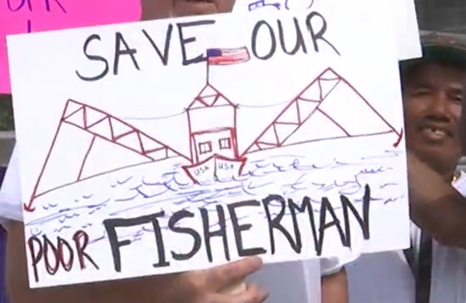
Save Our Shrimpers Act reintroduced to prevent taxpayer dollars from being used to fund foreign shrimp
Recent findings by the Southern Shrimp Alliance uncovered that United States taxpayer dollars were being used to finance foreign shrimp operations through international financial institutions. Cheri Blanchard is a Louisiana board member with the Southern Shrimp Alliance. “We find these situations like we’ve been ringing the bell about the World Bank and about international financing going into foreign shrimp aquaculture and with taxpayer money,” said Blanchard. “The value of U.S. Shrimp has been cut in half from 2021 to 2023, and it’s still about that value because people have had to tie up their boats,” she said. Video, more, >>CLICK TO READ<< 06:08
Fishermen want to go green but say DOGE cuts prevent that
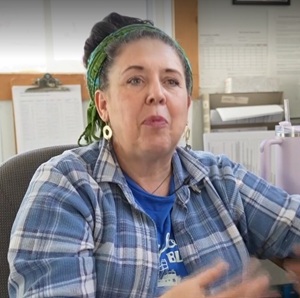 Commercial fishermen and seafood processors and distributors looking to switch to new, lower-carbon emission systems say the federal funding they relied on for this work is either frozen or unavailable due to significant budget cuts promoted by President Donald Trump’s Department of Government Efficiency. The changes are designed to replace old diesel-burning engines and outdated at-sea cooling systems and are touted by environmentalists as a way to reduce seafood’s carbon footprint. Salmon harvesters in Washington state, scallop distributors in Maine and halibut fishermen in Alaska are among those who told The Associated Press their federal commitments for projects like new boat engines and refrigeration systems have been rescinded or are under review. Photos, video, more, >>CLICK TO READ<< 10:51
Commercial fishermen and seafood processors and distributors looking to switch to new, lower-carbon emission systems say the federal funding they relied on for this work is either frozen or unavailable due to significant budget cuts promoted by President Donald Trump’s Department of Government Efficiency. The changes are designed to replace old diesel-burning engines and outdated at-sea cooling systems and are touted by environmentalists as a way to reduce seafood’s carbon footprint. Salmon harvesters in Washington state, scallop distributors in Maine and halibut fishermen in Alaska are among those who told The Associated Press their federal commitments for projects like new boat engines and refrigeration systems have been rescinded or are under review. Photos, video, more, >>CLICK TO READ<< 10:51
Trump EPA saves the whales (and consumers) by nixing NJ offshore wind farm
 Offshore wind farms are one of the biggest threats to the critically endangered Atlantic Right Whale. They are also a threat to the livlihood of commercial fishermen and to coastal tourism. Offshore wind turbines are one of the most expensive ways to make electricity and raise electric rates substantially to consumers. Making electricity with offshore wind turbines is generally four times as expensive as conventional sources. Thus, there were many groups cheering when the Trump EPA blocked the permit for New Jersey’s massive Atlantic Shores planned offshore wind farm. Links, more, >>CLICK TO READ<< 08:25
Offshore wind farms are one of the biggest threats to the critically endangered Atlantic Right Whale. They are also a threat to the livlihood of commercial fishermen and to coastal tourism. Offshore wind turbines are one of the most expensive ways to make electricity and raise electric rates substantially to consumers. Making electricity with offshore wind turbines is generally four times as expensive as conventional sources. Thus, there were many groups cheering when the Trump EPA blocked the permit for New Jersey’s massive Atlantic Shores planned offshore wind farm. Links, more, >>CLICK TO READ<< 08:25
‘It made me feel crazy’ | Filipino fishermen spent nearly 2 months trapped aboard fishing vessels in Westport
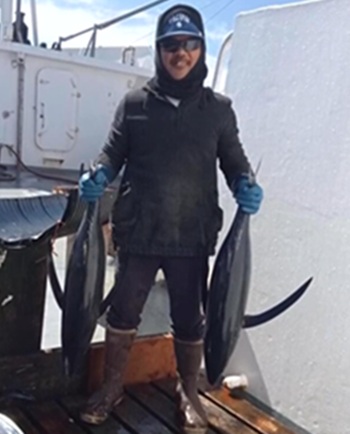 In the Pacific waters off Washington’s coast, fishermen work 18-hour shifts, hauling fish that can weigh up to 80 pounds. Commercial Albacore fishing was what drew Reyner Dagalea, Ray Sevella and Norberto Zebrele and dozens of other men to the United States from the Philippines. They agreed to work a contract with a U.S. fishing company in the summer of 2023. After spending time at sea, fishermen contracted by U.S.-based McAdams Fish and its Filipino counterpart Pescadores docked in Westport. There were 24 men, in all, across multiple boats. U.S. law does not require that foreign fishermen have visas to work aboard vessels owned by U.S. companies. But once the boats docked, the men were told that if they got off the ships, they would be arrested, fined and then deported. Video, more, >>CLICK TO READ<< 12:50
In the Pacific waters off Washington’s coast, fishermen work 18-hour shifts, hauling fish that can weigh up to 80 pounds. Commercial Albacore fishing was what drew Reyner Dagalea, Ray Sevella and Norberto Zebrele and dozens of other men to the United States from the Philippines. They agreed to work a contract with a U.S. fishing company in the summer of 2023. After spending time at sea, fishermen contracted by U.S.-based McAdams Fish and its Filipino counterpart Pescadores docked in Westport. There were 24 men, in all, across multiple boats. U.S. law does not require that foreign fishermen have visas to work aboard vessels owned by U.S. companies. But once the boats docked, the men were told that if they got off the ships, they would be arrested, fined and then deported. Video, more, >>CLICK TO READ<< 12:50
Boat tours and ash scatterings help beleaguered California salmon fleet stay afloat
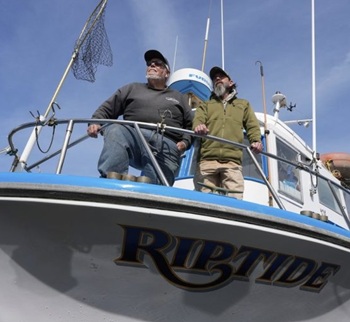 “The bills keep going, whether I’ve got a fishery or not,” said Smith, who runs Riptide Sportfishing in Half Moon Bay, California. “There’s no season on when people die.” California’s sport and commercial fishermen have been walloped by two years of salmon closures and are bracing for a potential third, which they blame on a years-earlier drought and state and federal water management policies they say have made it tough for the species to thrive. The closures have taken a toll on people’s livelihoods in coastal communities where salmon, fishermen say, is a special fish. “We are people that are hardworking and it’s our jobs on the line,” said Sarah Bates, a commercial fishing captain in San Francisco. She said local markets have been devastated by the salmon closures and Bay Area restaurants aren’t snapping up halibut or other catch as they did salmon. more, >>CLICK TO READ<< 06:36
“The bills keep going, whether I’ve got a fishery or not,” said Smith, who runs Riptide Sportfishing in Half Moon Bay, California. “There’s no season on when people die.” California’s sport and commercial fishermen have been walloped by two years of salmon closures and are bracing for a potential third, which they blame on a years-earlier drought and state and federal water management policies they say have made it tough for the species to thrive. The closures have taken a toll on people’s livelihoods in coastal communities where salmon, fishermen say, is a special fish. “We are people that are hardworking and it’s our jobs on the line,” said Sarah Bates, a commercial fishing captain in San Francisco. She said local markets have been devastated by the salmon closures and Bay Area restaurants aren’t snapping up halibut or other catch as they did salmon. more, >>CLICK TO READ<< 06:36

How the Alabama Seafood Labeling Law is affecting Gulf Coast industry
Almost a year after being signed into law, residents should be beginning to see impacts the Alabama Seafood Labeling Law is having on the local industry. The Seafood Labeling Law was signed into law in May 2024, requiring in-state food establishments, such as grocery stores, restaurants, food trucks and in-store delis, to disclose and label whether any seafood being served was imported or domestically produced, as well as whether the seafood was farm-raised or wild-caught. Sellers are encouraged, but not required, to disclose the country of origin of imported foreign fish or shellfish. It also requires seafood suppliers who sell to these establishments within the state to disclose the country of origin so the retailers can accurately inform customers. It does not apply to ingredients in processed food. more, >>CLICK TO READ<< 07:47
Fuming fishermen hit out at John Swinney’s ‘disrespect’ as calls grow for urgent Holyrood debate
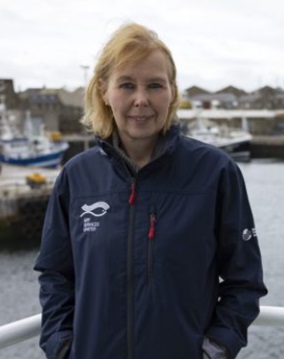 The SNP Government has been urged to hold its first fishing debate in almost three years before Easter amid fears over offshore wind developments. It comes after John Swinney was advised by officials not to use the term ‘spatial squeeze’ during talks with fishing industry leaders in Shetland last year. The term was first put forward by the Scottish Fishermen’s Federation (SFF) to describe the loss of fishing ground to other uses such as offshore wind farms and marine protected areas. Elspeth Macdonald, chief executive of the SFF, said: “It’s disgraceful, when it plans systematically and permanently to exclude fishermen from traditional fishing grounds to build colossal offshore wind farms, that a Scottish Government official briefed the First Minister not to recognise their deeply held concerns for their future livelihoods. more, >>CLICK TO READ<< 08:49
The SNP Government has been urged to hold its first fishing debate in almost three years before Easter amid fears over offshore wind developments. It comes after John Swinney was advised by officials not to use the term ‘spatial squeeze’ during talks with fishing industry leaders in Shetland last year. The term was first put forward by the Scottish Fishermen’s Federation (SFF) to describe the loss of fishing ground to other uses such as offshore wind farms and marine protected areas. Elspeth Macdonald, chief executive of the SFF, said: “It’s disgraceful, when it plans systematically and permanently to exclude fishermen from traditional fishing grounds to build colossal offshore wind farms, that a Scottish Government official briefed the First Minister not to recognise their deeply held concerns for their future livelihoods. more, >>CLICK TO READ<< 08:49

F/V Elite Navigator carried more safety equipment than required, writes TSB in investigation report
It’s impossible to know what caused the fire on the Elite Navigator in July 2024, as the fishing vessel was never recovered. But nearly seven months later, the Transportation Safety Board of Canada’s (TSB) investigation reveals what happened in the vessel’s final moments. According to the TSB report released on Wednesday, light smoke was visible in the engine room soon after a smoke alarm sounded at 7:30 p.m. NT. “A crew member in the deckhouse yelled that there was a fire in the exhaust trunking.” The report says the crew of the Elite Navigator were highly skilled in distress communications, even carrying devices not required by regulation like satellite communication devices and cell phones. more, >>CLICK TO READ<< 16:22
Maryland Fishing Groups Take Striped Bass Restrictions Fight to Supreme Court
 A coalition of Maryland fishing associations and charter boat operators have escalated their legal battle against new striped bass fishing restrictions, filing an emergency petition with the U.S. Supreme Court seeking to block the regulations. The Delmarva Fisheries Association (DFA) and the Maryland Charter Boat Association, along with two individual commercial fishermen, argue that the Atlantic States Marine Fisheries Commission’s (the Commission) recent measures impose “drastic, unwarranted, and illegal limitations” on striped bass fishing in the Chesapeake Bay and along the Atlantic coast. The petition, filed this week, claims the restrictions violate the U.S. Constitution and could jeopardize the livelihoods of many small businesses. The case follows months of legal disputes in lower courts, where the plaintiffs sought a preliminary injunction to halt the Commission’s 2024 striped bass management plan, known as Addendum II. more, >>CLICK TO READ<< 07:10
A coalition of Maryland fishing associations and charter boat operators have escalated their legal battle against new striped bass fishing restrictions, filing an emergency petition with the U.S. Supreme Court seeking to block the regulations. The Delmarva Fisheries Association (DFA) and the Maryland Charter Boat Association, along with two individual commercial fishermen, argue that the Atlantic States Marine Fisheries Commission’s (the Commission) recent measures impose “drastic, unwarranted, and illegal limitations” on striped bass fishing in the Chesapeake Bay and along the Atlantic coast. The petition, filed this week, claims the restrictions violate the U.S. Constitution and could jeopardize the livelihoods of many small businesses. The case follows months of legal disputes in lower courts, where the plaintiffs sought a preliminary injunction to halt the Commission’s 2024 striped bass management plan, known as Addendum II. more, >>CLICK TO READ<< 07:10
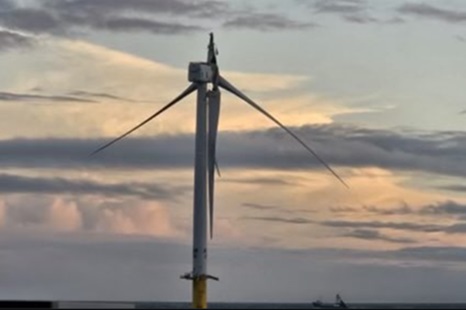
Damaged Wind Turbine that Polluted Nantucket Beaches Last Year Further Damaged in Lightning Strike
Lightning struck a wind turbine off the coast of Nantucket, Massachusetts, last week, further damaging a turbine operated by Vineyard Wind that made headlines last year when its blade fell off, polluting the ocean and nearby beaches. “The coverup blows on. Vineyard Wind’s lack of transparency around the structural integrity of its mammoth wind turbines is deeply frustrating to fishermen,” said Jerry Leeman, CEO of the New England Fishermen’s Stewardship Association. “In fact, Vineyard Wind officials met in February with officials from the Bureau of Safety and Environment Enforcement to discuss improving communications over safety issues. Foreign offshore wind developers seem breezily dismissive of commercial fishermen,” he added. Photos, more, >>CLICK TO READ<< 07:15
There’s a Fish Market Splashing into Eureka
 Something fishy is moving from the Woodley Island Marina’s docks across the bay to Eureka’s Madaket Plaza, where Humboldt County will have its first fisher’s market, starting in May or June. Ashley Vellis, owner of Ashley’s Seafood, has been brewing up the idea of a local fish market since late 2019 and is now partnering with the North Coast Grower’s Association to organize it, currently working on fundraising to make the new addition to Eureka’s waterfront a reality. Taking inspiration from dockside markets in Santa Barbara, San Diego and San Francisco, Vellis says that she wants to make it more accessible for people to purchase seafood directly from the source. The vision is that local fishers will have stalls to sell their latest and freshest catch. more, >>CLICK TO READ<< 12:25
Something fishy is moving from the Woodley Island Marina’s docks across the bay to Eureka’s Madaket Plaza, where Humboldt County will have its first fisher’s market, starting in May or June. Ashley Vellis, owner of Ashley’s Seafood, has been brewing up the idea of a local fish market since late 2019 and is now partnering with the North Coast Grower’s Association to organize it, currently working on fundraising to make the new addition to Eureka’s waterfront a reality. Taking inspiration from dockside markets in Santa Barbara, San Diego and San Francisco, Vellis says that she wants to make it more accessible for people to purchase seafood directly from the source. The vision is that local fishers will have stalls to sell their latest and freshest catch. more, >>CLICK TO READ<< 12:25
Lawmakers consider permanent funding for helpline for farmers, loggers and fishermen
 For more than a year, Oregonians involved in agriculture, forestry and the fishing industry have had a resource to help them when they’re in a mental health crisis. The AgriStress helpline, which launched in Oregon in September 2023, is geared toward people in those industries, offering a safe option to those who ordinarily might not seek help. “The pull-yourself-up-by-your-boot-strings mentality often prevents our community members from seeking help, making resources like the AgriStress helpline vital to breaking that cycle as imperative,” Republican state Rep. Bobby Levy of Echo, a longtime farmer and rancher, said during a recent legislative meeting on a bill to keep the line operating in perpetuity. more, >>CLICK TO READ<< 09:43
For more than a year, Oregonians involved in agriculture, forestry and the fishing industry have had a resource to help them when they’re in a mental health crisis. The AgriStress helpline, which launched in Oregon in September 2023, is geared toward people in those industries, offering a safe option to those who ordinarily might not seek help. “The pull-yourself-up-by-your-boot-strings mentality often prevents our community members from seeking help, making resources like the AgriStress helpline vital to breaking that cycle as imperative,” Republican state Rep. Bobby Levy of Echo, a longtime farmer and rancher, said during a recent legislative meeting on a bill to keep the line operating in perpetuity. more, >>CLICK TO READ<< 09:43

Guest writers: Bellingham’s SE Alaska salmon fleet threatened by lawsuits, misinformation
We appreciated Ed Johnston’s opinion editorial on Feb. 19, calling for cooperation in how we manage our salmon fisheries under the Pacific Salmon Treaty. As Washingtonians and Alaskans, we know that our shared Pacific salmon fisheries must be managed in a manner that considers how interceptions of salmon bound for distant watersheds may impact ecosystems, salmon populations and communities coastwide. That is why Washington sits alongside Alaska — as well as Canada — at the negotiating table under the Pacific Salmon Treaty. In order for our salmon and people to thrive, interceptions of salmon between the two countries must be managed using sound science and a cooperative approach. Our commitment to cooperative management and working collaboratively under the Pacific Salmon Treaty is as strong as our commitment to sustainable fishing livelihoods. more, >>CLICK TO READ<< 08:24
Maine: Commercial fishery value increases by $75M in 2024
 Commercial seafood landings earned Maine harvesters $74 million more in 2024 than the year before, according to preliminary data the Maine Department of Marine Resources released Thursday. The higher value of Maine lobsters — a year-over-year increase of $46 million — helped drive $74 million more in earnings for commercial harvesters across the board. “During a year shaped by unprecedented storms and damage to our working waterfronts, Maine’s commercial fishermen, aquaculturists, and seafood dealers once again delivered a major economic benefit to our state,” said Gov. Janet Mills. Even though in 2024, Maine’s commercial lobster fishery rose in value, about 10 million less pounds of lobsters landed on the docks. Photos, more, >>CLICK TO READ<< 14:24
Commercial seafood landings earned Maine harvesters $74 million more in 2024 than the year before, according to preliminary data the Maine Department of Marine Resources released Thursday. The higher value of Maine lobsters — a year-over-year increase of $46 million — helped drive $74 million more in earnings for commercial harvesters across the board. “During a year shaped by unprecedented storms and damage to our working waterfronts, Maine’s commercial fishermen, aquaculturists, and seafood dealers once again delivered a major economic benefit to our state,” said Gov. Janet Mills. Even though in 2024, Maine’s commercial lobster fishery rose in value, about 10 million less pounds of lobsters landed on the docks. Photos, more, >>CLICK TO READ<< 14:24
African Americans in seafood industry heart of new exhibit
 Capt. John Mallette grew up fishing but didn’t come from a fishing family. Born and reared around Sneads Ferry and the Topsail area, he said his mother worked in real estate in Wilmington and his father was one of Ocean City’s original developers and bought a home there in 1950. Ocean City was established on Topsail Island in 1949 and was “the first place where Black people could have oceanfront property” in the state, Mallette recently told Coastal Review. The motel had a pier, and “I pretty much lived on the pier fishing as a little kid,” he continued. “There was a lady who had One Stop Bait & Tackle in Surf City — Betty Warren, she’s long passed away now — but she would babysit me, basically, and I would sit there and help sell seafood and head shrimp and filet flounder. And then her husband, Preston, would take me out shrimping in the waterway with him, and that’s how I got started commercial fishing and just never stopped. I just grew into it and started running boats.” more, >>CLICK TO READ<< 10:34
Capt. John Mallette grew up fishing but didn’t come from a fishing family. Born and reared around Sneads Ferry and the Topsail area, he said his mother worked in real estate in Wilmington and his father was one of Ocean City’s original developers and bought a home there in 1950. Ocean City was established on Topsail Island in 1949 and was “the first place where Black people could have oceanfront property” in the state, Mallette recently told Coastal Review. The motel had a pier, and “I pretty much lived on the pier fishing as a little kid,” he continued. “There was a lady who had One Stop Bait & Tackle in Surf City — Betty Warren, she’s long passed away now — but she would babysit me, basically, and I would sit there and help sell seafood and head shrimp and filet flounder. And then her husband, Preston, would take me out shrimping in the waterway with him, and that’s how I got started commercial fishing and just never stopped. I just grew into it and started running boats.” more, >>CLICK TO READ<< 10:34
A Life Remembered: Captain John Allen Baker,1955 2025
I t is with broken hearts that we share the passing of our precious brother, Captain John Allen Baker, age 69 who lost his life at sea February 7, 2025. John was born December 9, 1955, in Canso, Nova Scotia to Calvin Howard Baker and Virginia Margaret O’Hearn. Having no biological children, we wish to acknowledge his commitment to his stepchildren, step-grandchildren and numerous nieces and nephews. He loved them all, would wrap them in a wonderful hug and generously shared all his resources (including free fish) with them. John’s career and entire life was devoted to the Commercial Offshore Fishery. There is so much more about John that most will never know. He shared his talents, knowledge and passion with anyone who was interested and mentored many fishermen during his life. more, >>CLICK TO READ<< 10:05
t is with broken hearts that we share the passing of our precious brother, Captain John Allen Baker, age 69 who lost his life at sea February 7, 2025. John was born December 9, 1955, in Canso, Nova Scotia to Calvin Howard Baker and Virginia Margaret O’Hearn. Having no biological children, we wish to acknowledge his commitment to his stepchildren, step-grandchildren and numerous nieces and nephews. He loved them all, would wrap them in a wonderful hug and generously shared all his resources (including free fish) with them. John’s career and entire life was devoted to the Commercial Offshore Fishery. There is so much more about John that most will never know. He shared his talents, knowledge and passion with anyone who was interested and mentored many fishermen during his life. more, >>CLICK TO READ<< 10:05
‘He was a legend, one of the best’: North Atlantic claims two N.S. fishermen
 On Thursday evening, Jerome Wilson got a call from the sea. It was his friend, Capt. John Baker. The Fortune Pride had a full load of silver hake aboard and was steaming for Riverport. “He hadn’t been in Riverport for a while, so he was going to wait until morning and steam up the river in the light,” remembered Wilson, who does mechanical work on fishing boats. “Wanted me to meet him there, check a few things over. He was happy. There was no indication he expected trouble.” “I’ve never felt a pain like this in my life,” said Rejeanne Hollett on Sunday, who went from planning her wedding to crewman Phil MacInnis on Thursday morning to planning his funeral that evening. “I would give anything to have him back. Anything.” more, >>CLICK TO READ<< 10:19
On Thursday evening, Jerome Wilson got a call from the sea. It was his friend, Capt. John Baker. The Fortune Pride had a full load of silver hake aboard and was steaming for Riverport. “He hadn’t been in Riverport for a while, so he was going to wait until morning and steam up the river in the light,” remembered Wilson, who does mechanical work on fishing boats. “Wanted me to meet him there, check a few things over. He was happy. There was no indication he expected trouble.” “I’ve never felt a pain like this in my life,” said Rejeanne Hollett on Sunday, who went from planning her wedding to crewman Phil MacInnis on Thursday morning to planning his funeral that evening. “I would give anything to have him back. Anything.” more, >>CLICK TO READ<< 10:19
F.V. Fortune Pride: Company owner identifies two N.S. fishermen who died after boat capsized off coast
 The captain who died when a fishing boat capsized off the coast of eastern Nova Scotia on Thursday was an experienced fisherman who was returning to harbour with a full catch on board, says the vessel’s owner. Jose Teixeira, owner of the 18-metre F/V Fortune Pride, confirmed Saturday that John Allen Baker was the captain who died, and in a later email he identified deckhand Phil MacInnis as the second fisherman who didn’t survive after the Fortune Pride overturned. Teixeira said during an interview that the two other deckhands on board had been released from hospital, adding that when he saw them “they were in a state of shock, but they seemed to be (physically) fine.” more, >>CLICK TO READ<< 06:23
The captain who died when a fishing boat capsized off the coast of eastern Nova Scotia on Thursday was an experienced fisherman who was returning to harbour with a full catch on board, says the vessel’s owner. Jose Teixeira, owner of the 18-metre F/V Fortune Pride, confirmed Saturday that John Allen Baker was the captain who died, and in a later email he identified deckhand Phil MacInnis as the second fisherman who didn’t survive after the Fortune Pride overturned. Teixeira said during an interview that the two other deckhands on board had been released from hospital, adding that when he saw them “they were in a state of shock, but they seemed to be (physically) fine.” more, >>CLICK TO READ<< 06:23

2 crew members dead after fishing boat capsizes near Halifax, 2 others released from hospital
Two crew members are dead after their fishing boat capsized late Thursday off Halifax amid four-metre waves and strong winds. Two others who were pulled from the frigid waters after the 18-metre Fortune Pride foundered have been released from hospital. Jose Teixeira, whose company owns the vessel, confirmed in a brief interview that Capt. John Allen Baker was one of the deceased. He said the vessel’s deckhand also died. Three crew members were pulled from the water on Thursday night and one at 11:30 a.m. AT Friday, according to Kelsey Marshall of the Canadian Coast Guard.Video, more, >>CLICK TO READ<< 19:23
US taxpayer funds went to foreign competition for domestic shrimpers
 Fishermen and shrimpers in the United States have been in a decades-long battle with the very institutions meant to protect them, specifically the U.S. Treasury Department and its World Bank delegation. U.S. trade law bars the support of competing industries in which there is excess supply. Despite such laws, U.S. taxpayers spent two decades funding “aquaculture” projects in Vietnam, India, Ecuador and Indonesia, countries that now supply the overwhelming majority of shrimp to U.S. consumers. “There’s a law on the books that requires the United States, their directors that are at these international financial institutions, to use their voice and vote to oppose any project that where there’s a commodity that’s produced in surplus and where export to the United States would seriously injure a domestic industry,” Nathan Rickard, a trade lawyer who represents the Southern Shrimp Alliance,,, more, >>CLICK TO READ<< 12:45
Fishermen and shrimpers in the United States have been in a decades-long battle with the very institutions meant to protect them, specifically the U.S. Treasury Department and its World Bank delegation. U.S. trade law bars the support of competing industries in which there is excess supply. Despite such laws, U.S. taxpayers spent two decades funding “aquaculture” projects in Vietnam, India, Ecuador and Indonesia, countries that now supply the overwhelming majority of shrimp to U.S. consumers. “There’s a law on the books that requires the United States, their directors that are at these international financial institutions, to use their voice and vote to oppose any project that where there’s a commodity that’s produced in surplus and where export to the United States would seriously injure a domestic industry,” Nathan Rickard, a trade lawyer who represents the Southern Shrimp Alliance,,, more, >>CLICK TO READ<< 12:45
Fish harvester says possible tariffs leave N.L.’s fishery with a lot of uncertainty
 A pause in the tariff dispute with the United States is not bringing any comfort to Lee Melindy. “We’ve got to have fishing, we’ve got to have processors, and we got a company to send it into the States,” he said. “Those are all a circle. And if one of those pieces of the circle falls apart, it is detrimental on the rest of it.” Melindy is a fish harvester based in Lumsden, N.L. He’s a full-time crew member, deck boss and helps his father — the enterprise owner — in the wheelhouse. It’s been almost 30 years since he first entered the fishery, and he’s seen a lot of changes. “Over the years, I mean, we’ve had uphill battles and we’ve been good and whatnot, but when you’re looking at a possible four years, it could be very serious into the operating of an enterprise,” he said. This week, U.S. president Donald Trump said he would put a hold on his proposed 25 per cent tariffs on Canadian goods for 30 days. With that, Prime Minister Justin Trudeau paused Canada’s counter-tariffs. Video, more, >>CLICK TO READ<<07:30
A pause in the tariff dispute with the United States is not bringing any comfort to Lee Melindy. “We’ve got to have fishing, we’ve got to have processors, and we got a company to send it into the States,” he said. “Those are all a circle. And if one of those pieces of the circle falls apart, it is detrimental on the rest of it.” Melindy is a fish harvester based in Lumsden, N.L. He’s a full-time crew member, deck boss and helps his father — the enterprise owner — in the wheelhouse. It’s been almost 30 years since he first entered the fishery, and he’s seen a lot of changes. “Over the years, I mean, we’ve had uphill battles and we’ve been good and whatnot, but when you’re looking at a possible four years, it could be very serious into the operating of an enterprise,” he said. This week, U.S. president Donald Trump said he would put a hold on his proposed 25 per cent tariffs on Canadian goods for 30 days. With that, Prime Minister Justin Trudeau paused Canada’s counter-tariffs. Video, more, >>CLICK TO READ<<07:30
Letter to the Editor: US Wind project is not good for Sussex County by David T. Stevenson
 The federal US Wind Final Environmental Impact Statement concludes on page 135, “U.S. offshore wind projects would likely have a limited impact on global emissions and climate change.” So no impact on sea-level rise. US Wind claims the $200 million they will invest in building transmission lines will offer general upgrades to the local transmission systems. However, if the project isn’t built, the transmission upgrades are unnecessary. Their claim of lowering homeowner electric rates $9 per year is statistically zero given the model’s plus/minus $17 error range. Consultants employed by the Maryland Public Service Commission stated the offshore wind projects would simply replace onshore wind projects that cost 80% less. more, >>CLICK TO READ<< 08:57
The federal US Wind Final Environmental Impact Statement concludes on page 135, “U.S. offshore wind projects would likely have a limited impact on global emissions and climate change.” So no impact on sea-level rise. US Wind claims the $200 million they will invest in building transmission lines will offer general upgrades to the local transmission systems. However, if the project isn’t built, the transmission upgrades are unnecessary. Their claim of lowering homeowner electric rates $9 per year is statistically zero given the model’s plus/minus $17 error range. Consultants employed by the Maryland Public Service Commission stated the offshore wind projects would simply replace onshore wind projects that cost 80% less. more, >>CLICK TO READ<< 08:57






 Mississippi consumers would know whether their seafood and crawfish are domestic or foreign under a law the House unanimously passed Monday, months after two Biloxi businesses pleaded guilty in a federal case to selling foreign fish as Gulf fresh. The seafood labeling law expands a current state law that applies only to shrimp and crawfish served in restaurants. The proposed law makes it illegal in Mississippi for wholesalers, processors, retailers, restaurants and other food service establishments to represent foreign seafood and crawfish as domestic, either verbally or in writing. If the measure becomes law, Mississippi would join Louisiana and Alabama in requiring that seafood be labeled.
Mississippi consumers would know whether their seafood and crawfish are domestic or foreign under a law the House unanimously passed Monday, months after two Biloxi businesses pleaded guilty in a federal case to selling foreign fish as Gulf fresh. The seafood labeling law expands a current state law that applies only to shrimp and crawfish served in restaurants. The proposed law makes it illegal in Mississippi for wholesalers, processors, retailers, restaurants and other food service establishments to represent foreign seafood and crawfish as domestic, either verbally or in writing. If the measure becomes law, Mississippi would join Louisiana and Alabama in requiring that seafood be labeled.  The Office of Chief Medical Examiner has positively identified the body recovered Sunday from the sunken fishing vessel F/V Sudden Impact as Chester Barrett of South Addison. Chester’s body was recovered after a search that began Saturday, January 18th when he and his son Aaron were reported missing. The two had been transiting from Edmunds to South Addison on board the Sudden Impact when it sank in 160 feet of water about three-quarters of a mile southwest of Moose River in eastern Washington County. Maine Marine Patrol will continue periodic patrols in the area with the goal of locating Aaron, who was not found on board or near the sunken vessel. “We share our condolences with the family and friends of Chester and Aaron during this difficult time,” said Marine Patrol Captain Colin MacDonald. 10:17
The Office of Chief Medical Examiner has positively identified the body recovered Sunday from the sunken fishing vessel F/V Sudden Impact as Chester Barrett of South Addison. Chester’s body was recovered after a search that began Saturday, January 18th when he and his son Aaron were reported missing. The two had been transiting from Edmunds to South Addison on board the Sudden Impact when it sank in 160 feet of water about three-quarters of a mile southwest of Moose River in eastern Washington County. Maine Marine Patrol will continue periodic patrols in the area with the goal of locating Aaron, who was not found on board or near the sunken vessel. “We share our condolences with the family and friends of Chester and Aaron during this difficult time,” said Marine Patrol Captain Colin MacDonald. 10:17 The Department of Marine Resources says that divers found a body inside the cabin of the fishing boat “Sudden Impact,” which has been missing, along with its two passengers, for weeks. Two fishermen from South Addison, Chester Barrett and his son Aaron, reportedly sank in the Sudden Impact on January 18th as the two traveled from Edmunds to South Addison. The volunteer divers came from all over to aid the search, including Massachusetts, Connecticut, New Jersey, New York, and Pennsylvania. Among them are Chris Ogden, Richard Simon, Bob Foster, Mark Bowers, and Harold Moyers, with surface support from Eric Simon.
The Department of Marine Resources says that divers found a body inside the cabin of the fishing boat “Sudden Impact,” which has been missing, along with its two passengers, for weeks. Two fishermen from South Addison, Chester Barrett and his son Aaron, reportedly sank in the Sudden Impact on January 18th as the two traveled from Edmunds to South Addison. The volunteer divers came from all over to aid the search, including Massachusetts, Connecticut, New Jersey, New York, and Pennsylvania. Among them are Chris Ogden, Richard Simon, Bob Foster, Mark Bowers, and Harold Moyers, with surface support from Eric Simon. 



























